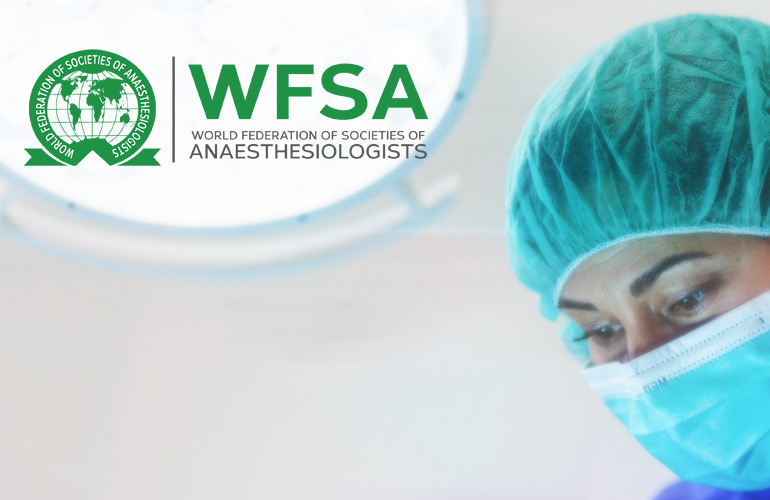Statement to WHO Regional committee highlights the necessity of a strong anaesthesia workforce to effectively respond to future health emergencies.
Agenda item 8.2: Strengthening health emergency preparedness and response in the SE Asia Region building upon lessons learnt from COVID-19
The World Federation of Societies of Anaesthesiologists (WFSA) represents over 300,000 anaesthesiologists in 142 countries, with 10 national member societies in the South-East Asia (SEA) Region.
WFSA’s members welcome the SEA regional committee’s commitment to learning from responses to past health emergencies and for its advice to governments to put in place the structures necessary to protect the region’s populations for the next health emergency.
A key lesson from past health emergencies must be the central role that anaesthesiologists and critical care specialists play in leading the response to health emergencies as diverse as pandemics through to natural disasters. With the wide range of their expertise in resuscitation, ventilation, peri-operative and post-operative care, critical care, pain management and much more, anaesthesia professionals perform multiple vital roles in health systems.
The evidence is clear, health systems need a healthy and equipped anaesthesia workforce to effectively respond to a pandemic.
Unfortunately, the SEA region faces a chronic lack of trained anaesthesia professionals. The WFSA’s Global Anaesthesia Workforce Survey found that the SEA region has a physician anaesthesia provider density of just 1.2 per 100,000 population, far below the recommended interim target of 5 per 100,000 as outlined in the WHO-WFSA International Standards for a Safe Practice of Anesthesia (Gelb et al, 2018).
For SEA member states to realise ‘sustainable and resilient health systems’ as outlined in the Regional Strategic Roadmap 2023–2027 there is an urgent need to develop and implement national policy and financing frameworks that will sustainably grow and support vital anaesthesia services.
WFSA calls on SEA region member states and key stakeholders to:
- Address chronic workforce deficiencies through investment in anaesthesia and critical care training and ongoing education.
- Collect measurable anaesthesia and critical care indicators such as anaesthesia workforce density, oxygen supply and facility date for health emergency preparedness benchmarking.
- Prioritise the development of National Surgical, Obstetrics and Anaesthesia Plans (NSOAP).
Correspondences to: Francis Peel (Francis.peel@wfsahq.org)






